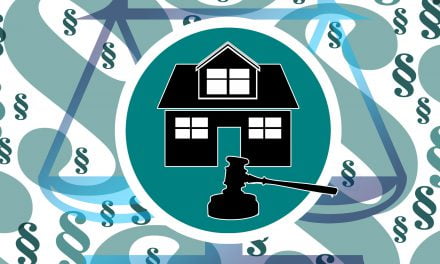The appraisal profession is the least accessible of all real estate-related careers. With steep training requirements and an opaque management and fee structure, you practically need to be an insider to even begin the process of becoming an appraiser.
But the Appraiser Qualifications Board (AQB) is attempting to draw back the curtain with its recent announcement of a new way for appraiser trainees to fulfill the experience requirement.
This new federal program, Practical Applications of Real Estate Appraisal (PAREA), was recently highlighted by the California Bureau of Real Estate Appraisers (BREA).
PAREA received initial approval in 2020 and the AQB is finally releasing the first version of the online training program to the public in Fall 2023.
Editor’s note — The AQB is part of the Appraisal Foundation, a federal organization responsible for approving all minimum education, experience and exam requirements for appraisers, nationwide.
PAREA provides an online environment with periodic mentoring for individuals to complete the full experience requirement for the Residential and Certified Residential appraisal license. Partial experience may be fulfilled for the Certified General appraisal license with PAREA.
Related video:
This new option allows future appraisers to choose from either the:
- supervisor/trainee model; or
- online PAREA model.
Appraiser trainees need to obtain a combination of experience which includes:
- carrying out several instances of the full appraisal process under the guidance of a supervising appraiser (or now, under PAREA);
- completing a work log;
- reviewing others’ appraisals; and
- assisting in preparing appraisals.
Before beginning PAREA, the individual needs to first complete all qualifying education requirements for licensing.
After completing PAREA, the individual is eligible to take the appraisal exam for full certification.
A bridge for the appraiser gap
The goal of the change is to open the doors to more appraisers — especially more diverse appraisers.
In an industry which is almost exclusively older and white, a more accessible training process will pave the way for more diverse trainees at a time when California’s appraiser population is declining rapidly and facing scrutiny for its monolithic demographics.
With 9,012 appraisers active and licensed by the California BREA, the number of licensed appraisers is the lowest since the BREA began recording the appraiser population in 1993.
The main reason for the decline is the wave of retiring appraisers, which has not been relieved by new licensees. Early career appraisers in their 20s and 30s make up only 11.5% of the total appraiser population, while 38% of the population is near or past retired, at age 60 or above.
Editor’s note — The timing for release of the PAREA training program this year finds the need for appraisals declining and likely to further decelerate in the next few years alongside reduced sales volume and refinances. Conditions for earning a decent living in the appraisal business will rapidly improve in 2026 as the recovery takes hold and mortgage lender demand for appraisals is confronted with even fewer appraisers.
Related article:
The need to find a supervisor willing to take the considerable effort to mentor and take responsibility for a trainee has been a barrier to entry for individuals who have considered the appraisal profession but lack personal connections to experienced appraisers. Further, supervisors may have no more than three trainees under their responsibility at any one time.
Now, trainees will be able to receive mentorship and training online simply by signing up for PAREA — no previous personal connections or contacts necessary.
However, it remains to be seen whether PAREA will be a suitable stand-in for the valuable hours of one-on-one mentorship offered by the traditional supervisor-trainee model.
Already, California’s appraiser trainee requirements have been dialed back in recent years in an effort to attract more appraisers.
Related article:
It’s important to note: the robust training requirement for appraisers protects members of the public — buyers and sellers — from inexperienced appraisers. With the ability to derail sales, mislead lenders, reinforce appraisal inequality and set false home value expectations, a qualified appraiser is often the linchpin that sees a transaction through to completion (… or not).
As always, real estate agents will need to remain vigilant for under- or overvalued appraisals, especially in the declining price environment of 2023-2024.
When an agent or their client believes the appraiser has not filed an objective and complete appraisal report, they may file a complete at the BREA’s website. With reduced training as a team member working with an experienced appraiser, expect more complaints to be filed.
Related article:
Change the law: Require an apprenticeship period for new agents













